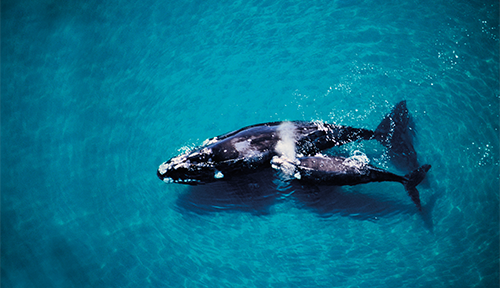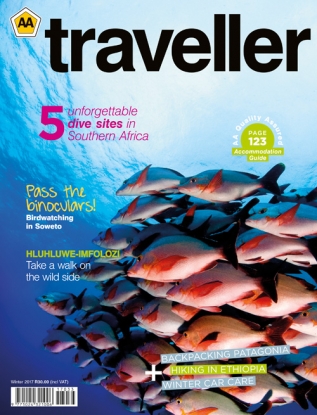These oceanic giants are vital indicators of the state of our seas. Marion Whitehead speaks to Robin Alcock of Southern Right Charters and Meaghen McCord from the South African Shark Conservancy in Hermanus to find out more
What makes whales so fascinating?
These large, charismatic animals are mammals, just like us, yet they’re so different that they can comfortably exist in a watery world very foreign to us.
Why are they special?
Biologically, whales are special because they are the largest animals on Earth. Ecologically, many species influence the ocean food webs and help to construct and maintain healthy ecosystems. From a conservation perspective, whales are also incredibly special, as their plight has helped raise global awareness about the issues facing our oceans today.
Are the whales that visit our shores endangered?
Right whales (the collective term for three different species found around the world) are the rarest of all the large whales and among the rarest marine mammals. The ones we find here, Southern right whales (Eubalaena australis), are still considered scarce compared to historic population levels, but are recovering from whaling and were classified as of least concern in 2013’s International Union for the Conservation of Nature and Natural Resources (IUCN) Red List.
What’s the protocol for ‘observing rather than disturbing’ whales?
To respect their space, understand their behaviour and enjoy the experience of them choosing to interact with us – this is our motto at Southern Right Charters. It embodies best-practice principles and permit regulations for boat-based whale-watching operators.
What happens if they’re disturbed?
Whales are capable of fast movement. If a southern right feels disturbed (by another animal or a human), it will exhibit evasive behaviour to escape the interaction. This includes deep diving.
Are there any special considerations for watching mothers and babies?
Yes, there are regulations regarding how to approach them, the time spent near them and the distance from which to view them. The southern right whales come to our shoreline to mate and give birth, and to spend a few months in the sheltered bays of Hermanus where the mom feeds, cares for and teaches her newborn about the ways of their world. Once the calf is strong enough, they swim south in search of food.
Do you build up a relationship with these intelligent creatures?
Unfortunately, we don’t speak ‘whale’! They are wild animals and we view and research them in their natural environ-ment, with no physical interaction, so there’s no relationship as such. But, for us, there is definitely a connection.
What is the Marine Ecology Research Programme?
It’s a joint initiative between Southern Right Charters whale watching and the South African Shark Conservancy, which is designed to improve understanding of the marine biological and ecological processes in Walker Bay. Southern right whales are one of the bay’s iconic species and provide an excellent opportunity for us to raise awareness of the importance of marine conservation along the Cape Whale Coast.
For info on whale-watching trips, contact Southern Right Charters.
082 353 0550, info@southernrightcharters.co.za
www.southernrightcharters.co.za
To find out about marine ecology and conservation, contact the South African Shark Conservancy.
028 312 3029, info@sharkconservancy.org
www.sharkconservancy.org
Photography Gallo/Gettyimages
(This article was first published in the winter 2014 issue of AA traveller magazine)




